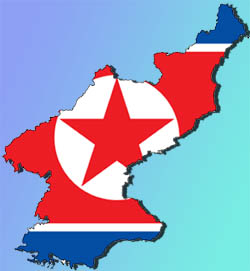North Korea survives years of international isolation
 Seoul - Twenty years ago, South Koreans hoped the "wall" that separates the Korean Peninsula would tumble down like the Berlin Wall and pave the way to reunification with North Korea.
Seoul - Twenty years ago, South Koreans hoped the "wall" that separates the Korean Peninsula would tumble down like the Berlin Wall and pave the way to reunification with North Korea.
Although not a real wall, the border between capitalist South Korea and communist North Korea - the most heavily militarized border in the world - has all along been more impermeable than the border between the two German states, which fell in November 1989.
But the hopes were soon dashed as South Koreans realized that the North Korean regime was not ready to open up and let its citizens travel freely across the border or even within their own country.
From a geopolitical perspective, hopes that the fall of communism in Europe would also trigger a similar domino effect in Asia have been disappointed. While China, Vietnam and Laos also retained their communist regimes, North Korea has proven to be a particularly hard-core Stalinist nation.
It has kept the country and its people isolated, impoverished and technologically backward, and its intransigence has caused opinions in tech-savvy South Korea, Asia's fourth-largest economy, to change about an eventually reunited Korea.
Today, 20 years after the collapse of European communist regimes as well as almost a decade of Seoul's Sunshine Policy of engagement with North Korea, South Koreans are far more sceptical about an early reunification with their neighbour.
A large portion of the South's population worries that not only would the costs be difficult to shoulder and would undermine their wealth but also that the mindsets of South and North Koreans have drifted too far apart after more than 60 years of division in the wake of the
1950-53 Korean War.
Although heavily armed, North Korea today is a poor country that depends on outside help to feed its own citizens.
According to data provided by the Unification Ministry in Seoul, per-capita gross national income in North Korea stood at 1,152 dollars in 2007, about a 20th of the figure in South Korea.
Foreign diplomats in North Korea estimated only about a third of the country's factories are in operation.
As their communist neighbours of China and Vietnam underwent a significant economic and, for a large part, also social transformation in the past two decades, the situation for normal North Koreans went from bad to worse.
China, which is still seen as the most important ally of North Korea and its biggest benefactor, has tried to change that. China has long tried to bring the isolated leadership in Pyongyang on a course of economic reforms similar to those in China, which have transformed its economy into the third largest in the world.
The attempt was aimed at promoting the economic development of the neighbouring country after the collapse of the former Soviet Union left it highly impoverished, but it failed.
Despite a near-ruined economy and widespread hunger, North Korea's totalitarian regime has not only survived but also maintained an iron grip over the people in a country where no visible signs of opposition exist.
Strong personality cults have surrounded and glorified both current leader Kim Jong Il and his late father, Kim Il Sung, the only leaders to rule a country whose main political ideology is called "juche."
It was developed by Kim Il Sung and roughly translates into self-reliance. It requires absolute loyalty to the ruling Workers Party and the country's leader and is most notable for its economic programme, which has made North Korea dependent on foreign aid.
The younger Kim has also strengthened the regime through his "songun" policy, or military-first politics. Songun has helped North Korea's military become the fifth largest in the world, with 1.1 million soldiers and a costly nuclear programme, and use up an estimated 25 per cent of North Korea's gross national product.
On the international stage, North Korea has been criticized for using nuclear brinkmanship to survive international pressure to change, especially from its arch foe, the United States.
The country's development of nuclear weapons is seen by many observers as the key to secure the system and power of Kim Jong Il.
So far, the regime's survival strategy appears to have succeeded.
In April, North Korea revised its constitution in an apparent bid to give even more power to Kim Jong Il amid reports of the dictator's poor health and a power transition to his son. The changes were publicized recently by the South Korean government.
The chairman of North Korea's powerful National Defence Commission, a post that Kim currently holds, is now described in the new constitution as the country's "supreme leader".
North Korea's new constitution also places more weight on Kim's songun policy and his support for the country's own way of socialism. (dpa)